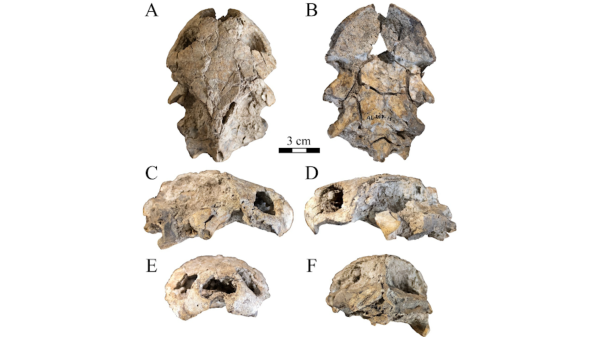Orbital Reef, a partnership between Blue Origin and Sierra Space that includes a consortium of universities led by Arizona State University, was selected today by NASA through a funded Space Act Agreement to design a commercially owned and operated space station in low Earth orbit (LEO) in the amount of $130 million.
NASA’s Commercial LEO Development program aims to shift NASA’s research and exploration activities in LEO to commercial space stations, helping stimulate a growing space economy before the International Space Station is retired. The Orbital Reef team also includes Boeing, Redwire Space and Genesis Engineering Solutions.
Orbital Reef’s shared infrastructure will support the proprietary needs of diverse U.S. and international users, tenants and visitors, including those representing research, industry, government and the commercial sector. Features such as reusable space transportation and advanced automation can minimize cost and complexity to enable the widest range of users. Accommodations, vehicle docking ports and utilities can all be scaled with growth in market demand.
“We are pleased that NASA supports the development of Orbital Reef, a revolutionary approach to making Earth orbit more accessible to diverse customers and industries,” said Brent Sherwood, senior vice president of advanced development programs for Blue Origin. “In addition to meeting the ISS partners’ needs, the Orbital Reef mixed-use space business park will offer reduced costs and complexity, turnkey services and inspiring space architecture to support any business. No one knows how commercial LEO markets will develop, but we intend to find out.”
Lindy Elkins-Tanton, vice president of ASU’s Interplanetary Initiative and principal investigator of the NASA Psyche mission, said, “We’re grateful to receive NASA’s support for Orbital Reef’s shared mission. The University Advisory Group is ready to embark on this new challenge — to create guidelines for ethical research and manufacturing, to assemble experts in every field, and to create community connections to Orbital Reef that include science, engineering, art, history, philosophy and religion — all aspects of the human experience.”
Consortium members have already met to begin their work. Comprising 15 leading academic institutions with expertise in space and microgravity research, the University Research Advisory Council will focus on academic community needs, stimulate research, advise novice researchers, evolve standards of conduct and lead STEM outreach.
University Advisory Council members include:
- Arizona State University.
- Colorado School of Mines.
- International Space University.
- Massachusetts Institute of Technology.
- Oxford University.
- Purdue University.
- Southwest Research Institute.
- Stanford University.
- University of Central Florida.
- University of Colorado at Boulder.
- University of Florida.
- University of Michigan.
- University of Texas at El Paso.
- University of Texas Medical Branch.
- Vanderbilt University.
These partners bring together all the expertise to develop, integrate and operate Orbital Reef’s transportation and destination systems and services:
Blue Origin leads development of the station’s infrastructure, large-diameter metal modules, last-mile space tug and reusable heavy-lift New Glenn launch system.
Sierra Space leads development of the LIFE (Large Integrated Flexible Environment) and small-diameter metal node modules, and Dream Chaser spaceplane for crew and cargo transportation with runway landing anywhere in the world.
Boeing leads development of the station’s operations and maintenance and science module, and Starliner crew capsule.
Redwire Space leads microgravity research payload development and operations, large deployable structures and the Orbital Reef digital twin.
Genesis Engineering Solutions develops the Single Person Spacecraft for routine operations and tourist excursions.
Arizona State University leads the University Advisory Group, a global consortium of universities for research advisory services and public outreach.
Orbital Reef’s vision is to provide an “address in orbit” for anyone. Early customers may include NASA, its traditional ISS partners and non-traditional governments and agencies needing easier access to space. The station will grow as markets grow, including commercial industries such as research and manufacturing, media and entertainment, sports and gaming, and adventure travel and tourism.
For more information, visit www.orbitalreef.com.
Arizona State University press contact: Sandra Leander, [email protected]. Top image courtesy of Orbital Reef
More Science and technology

When facts aren’t enough
In the age of viral headlines and endless scrolling, misinformation travels faster than the truth. Even careful readers can be swayed by stories that sound factual but twist logic in subtle ways that…

Scientists discover new turtle that lived alongside 'Lucy' species
Shell pieces and a rare skull of a 3-million-year-old freshwater turtle are providing scientists at Arizona State University with new insight into what the environment was like when Australopithecus…

ASU named one of the world’s top universities for interdisciplinary science
Arizona State University has an ambitious goal: to become the world’s leading global center for interdisciplinary research, discovery and development by 2030.This week, the university moved…
